|
Over the last several years wildfires have been increasing in their frequency and intensity. We are seeing firsthand the lasting effects these disasters have on communities and the spirits of the people in them. A fire that causes the loss of only home can be just as devastating to that family and the community around them. Getting through the fire itself is hard, but then begins the journey of rebuilding which can be just as difficult and far more tedious.
It is important in the season after a fire, regardless of its size, to take the time to care for the deep layers of the soul that are often affected. Caring for the physical body is key to health. Making arrangements to be able to sleep soundly, to eat good, nourishing food, to exercise in a way that is beneficial and soothing are all foundational to long term healing. Setting this base for care will begin to make space to process through the emotional and spiritual challenges that may arise in the days, weeks, and even months following.
Spiritual directors should be checking in on all levels of care for their directees during sessions following disasters. How are they sleeping? How are they getting food? Do they need to see a doctor? A therapist? If the body is suffering, access to the heart and spirit will be difficult, if not completely blocked off. Some directees may find it helpful to take a walk during sessions in this season, while others will need a safe space to sit quietly. Flexibility, hospitality, and generous nurture are musts for directors who are companioning people who have been through a natural disaster. Now is no time for asceticism or rigidity in disciplines. Please review our suggestions for items and tools to have on hand during direction with those who have been traumatized. Also check out our links to helpful books and websites explaining and suggesting a variety of practices if you need a refresher on some options to give your directees.
Practices that may be helpful after a fire include:
Prayer For After A Fire: We are raw. Everything inside and out is sensitive. We are full of frenetic energy, yet fatigued beyond what we feel we can bear. We felt small and helpless. We struggle to trust our routines. We mourn the loss of family, friends, and the familiar. We have had our fill of the raging power of fire, Help us find the balance of the elements. Give us the stability of the earth, The flexibility of the wind, And the softness and repose of water. Give us courage to rebuild. Provide patience in the waiting. Remind us of the balance between the comfort of warmth and the refreshment of coolness. Soothe our frayed and fragile nerves. Give us the eyes and ears to see the needs of our neighbors. We are in need of nurture and protection, Be our Good Parent. Help us to love each other and ourselves well. Restore us to ourselves, reorient us to lasting abundance.
You can sustain this blog by becoming a monthly giver today. Thank you for your generosity!
1 Comment
In this age of smart phones, wifi, and mobile offices, it seems that our daily lives become more and more dependent upon consistent and reliable sources of power. We use electricity to keep our homes comfortable, our food safe, and entertainment ready. For some life and livelihood depend upon access to power that keeps life saving machines working. Unfortunately, access to reliable power is often something that suffers in the wake of a disaster. This is why power outages, especially if they are extended, can cause a surprising amount of distress. The effects of an outage can range from the mild inconveniences to serious impact on health or work. Outages often occur simultaneously with a natural disaster, but also may continue to happen in both planned and unplanned fashions for weeks or even months after the disaster as various infrastructure projects and repairs take place. Sometimes planned outages are done in advance of expected extreme weather to help avoid fires and often last 3-5 days. The continued unreliability of a utility that has such great influence on our ability to predict meals, complete work, or relax after a hard day wears on the spirits of affected communities. Unexpected outages in particular can bring up fear as people may associate them with the disaster and be afraid that something is happening again. Part of being a thoughtful spiritual director, who cares about the whole person, means acknowledging and caring for these kinds of daily needs that are difficult in the aftermath of disaster. Addressing this fear may be as simple as making sure that your directees are aware of how the power company communicates and where they can go to get updates on return of service or any planned outages. Or, that particular distress may be a doorway to naming deeper fears about safety and sustenance. Incorporating grounding practices into sessions or recommended disciplines can be helpful. Assisting with personal calming practices as well as help identifying what connects them to a sense of safety when caught off-guard can be a great gift to directees in these circumstances. Some questions to consider as you meet with directees who are experiencing power outages:
You can sustain this blog by becoming a monthly giver today. Thank you for your generosity! Erin Jantz received her Master’s Degree in Spiritual Formation and Soul Care from the Institute for Spiritual Formation. She also holds a B.A. in developmental psychology and has furthered her education with trainings in trauma care from Boston University and intensives with Dr. Bessel Van Der Kolk. She has been practicing spiritual direction since 2012, helped to author ICTG's Spiritual Formation Resource Guide, and also teaches and speaks on a variety of spiritual formation topics. Erin lives in Southern California with her husband and their four marvelous children.
The fact that we describe some types of natural disasters as having “seasons” is always striking to me. It is intriguing that we both know that we will be faced by the destruction fires, mudslides, and hurricanes bring, and that the fear and loss left in their wake never ceases to surprise and devastate us. Seasonal disasters challenge us and remind us of the realities of both wonder and difficulty in the world and bring to light the wonderful human qualities of hope and a spirit that rises up to overcome adversity. Hurricanes are one of those disasters that have a season. Changing weather systems rise up and the resulting storms over the ocean are full of power. The impact of these storms is often felt by coastal inhabitants in the form of raging wind and sometimes flooding. If the storm makes landfall and the might of the entire system is felt by those living near the coasts, the effects on communities can be devastating. Like many natural disasters, there is often some warning that the storm is coming, but it is difficult to predict the outcomes and what the damage will be. In many cases the rebuilding trajectory is long as people wait for power to be restored, wait to return to their homes, wait for insurance claims to come through, wait for new structures to be built, the list goes on. One of the realities of living in a part of the country where hurricanes often make landfall, is that the disaster is experienced again, and again, and again. Many people exposed to hurricanes suffer from depression and anxiety or develop PTSD. There are also often marked changes in community health following a hurricane. In meeting for spiritual direction after a hurricane, how can you find space to address the chronic nature of the disaster? It may be that there is room to not only heal from what has happened, but also to begin to prepare the soul for next time, looking forward with a sense of purpose and agency. What are the strategies for health that people who have spent their entire lives in “hurricane country” are using? How are the cycles of preparation, weathering the storm, rebuilding, and quiet seasons helpful in understanding life? What strategies for calming and communication worked well? What can be adjusted to serve better next time? In meeting for spiritual direction after a hurricane, how can you find space to address the chronic nature of the disaster? Lament and remembrance may be particularly helpful disciplines to practice after surviving a hurricane. Writing a personal lament or one on behalf of the community helps give voice to the emotions accompanying the loss. The ICTG resource guide for Spiritual Directors6 contains guidelines and suggestions for creating a personal lament. Practicing remembrance may look like creating a memorial, story-telling, or simply lighting candles to represent individual losses. Being a spiritual director after a disaster is truly walking with survivors through the Valley of the Shadow of Death. Helping to make space for very real and present grief to be vented allows the beginnings of hope to be restored. Guidelines for creating a personal lament:
Do you have ICTG's Spiritual Direction Resource Guide? It's an in-depth training manual for trauma preparedness and response for Spiritual Directors. It includes restorative strategies to expand care and provide safety for traumatized people to heal and thrive. Erin Jantz received her Master’s Degree in Spiritual Formation and Soul Care from the Institute for Spiritual Formation. She also holds a B.A. in developmental psychology and has furthered her education with trainings in trauma care from Boston University and intensives with Dr. Bessel Van Der Kolk. She has been practicing spiritual direction since 2012, helped to author ICTG's Spiritual Formation Resource Guide, and also teaches and speaks on a variety of spiritual formation topics. Erin lives in Southern California with her husband and their four marvelous children.
Facing any natural disaster can easily be an overwhelming experience. There is often a sense of complete loss of control as well as absolute loss of material possessions. With a flood there is potential for a long continued set of discoveries having to do with damage from the flooding, such as structural damage, mold, and erosion. Survivors of a flood may feel that they are swirling in questions and unknowns as they watch the waters rise and recede. How bad is the damage? Will we be able to repair it? Am I still in danger? How long will this last? Floods sometimes come and go very quickly, washing away memories and homes. And sometimes the flooded area is under water for weeks before even basic assessments can begin to be made. The language of describing flooding lends itself very well to also describing the feelings of those affected. “Drowning,” “washed away,” “torrent,” “adrift,” all may be ways that one’s directees experience their emotions. Patience and a calm presence from a spiritual director will be a great gift to those who are displaced by or recovering from flooding. Directors should also be attuned to the fact that most cultures and faith traditions have some sort of flood narrative in their collective stories or scriptures. It is possible that with floods more than other natural disasters, that individuals may have unconscious associations of the event with Divine wrath or punishment. As always, sensitivity, openness, and compassion are necessary in walking with these survivors. If you are meeting locally with people in your community then it is also likely in cases of flooding, or any widespread disaster, that you too have been affected. Be sure that you are taking the time and space to care for your own wounds in this healing period. Some practices that may be helpful for directees who have survived a flood include: -centering prayer -mindfulness or meditation -practicing gratitude -physical grounding exercises -“praying the hours” or other rhythms of worship -connecting with neighbors -volunteering A Prayer For After A Flood Oh God, the waters just kept rising. They poured down the streets and through our doors. Our feelings of agency and control have literally been washed away. Our homes and jobs are gone or put on indefinite hold. This waiting and wondering makes us weary deep in our bones. Some of us have lost material possessions. Some of us have lost beloved pets. Some of us have lost people who provided meaning in our lives. All of us have lost what we thought of as normal life. Give us the endurance to honor those losses. Pull our feet and souls out of this muck. Put us on a firm foundation. Restore us to our land and ourselves. Help us to see moments of joy and relief. Remind us of all that we are grateful for. Show us the clean start, hidden under the debris. Erin Jantz received her Master’s Degree in Spiritual Formation and Soul Care from the Institute for Spiritual Formation. She also holds a B.A. in developmental psychology and has furthered her education with trainings in trauma care from Boston University and intensives with Dr. Bessel Van Der Kolk. She has been practicing spiritual direction since 2012, helped to author ICTG's Spiritual Formation Resource Guide, and also teaches and speaks on a variety of spiritual formation topics. Erin lives in Southern California with her husband and their four marvelous children.
Few things make us aware of the wildness and strength of weather like a tornado. They often are formed in the aftermath of a storm that by itself is overwhelmingly powerful. They appear quickly and seem to vanish suddenly, leaving destruction in their wake. Advance warning serves to allow some people to protect themselves, but there is little that can be done to protect property or the land in general from the force of a “twister.” Survivors, especially those who are sheltering in their homes when the storm hits, have incredible stories that share many elements. Most people, regardless of what happens to the structure they are in, describe the incredible force with which the wind rips and blows, and in particular, the sounds. It’s described as being “like a freight train,” “explosions,” “deafening,” and “a fighter.” Neighborhoods that have been affected are often described as “war zones.” The violence experienced by survivors is palpable to those of us who listen to their stories or see images of what has been left behind. The body and soul after violence Violence touches the body and soul in a unique way. It is difficult to not absorb into our spirits what we have seen with our eyes, heard with our ears, and felt with our skin. In companioning someone who has survived a tornado, we need to be sensitive to not only the grief and questions that come with loss, but the very real and lingering effects of violence. We will do well to remember the very real force and pressure that survivors have lived through. Survivors of violence, even violent acts of nature, need to experience empowerment and encouragement as part of the healing process. In companioning someone who has survived a tornado, we need to be sensitive to not only the grief and questions that come with loss, but the very real and lingering affects of violence. Empowerment and encouragement through posture Some of the simplest ways to bring empowerment and encouragement to the spiritual journey are through trying different postures for prayer or meditation, and practicing gratitude. Practicing gratitude puts us in the position of looking at what is good, what is helpful, and what is holy. Often these are things that cannot be truly harmed, or things that may have been overlooked in what looks and feels like devastation. Using different postures in prayer is a helpful way of bringing the body, and the nervous system in particular, into alignment with our emotions. This allows our body to speak for us when words fail, and conversely, may help us find words for what can become trapped in our bodies. Some postures to try may include: -Standing, head up, eyes open. -Standing with arms at sides, palms open to the front. -Standing with arms half raised, palms open. -Standing or sitting with palms open or fists closed. -Lying on one’s back, palms open and facing up. -Lying prostrate In general, we can encourage our directees to continue moving and adjusting their posture until they discern that their body’s position matches the emotion they feel. From this aligned and grounded place they can hopefully enter in to the Presence their unique situation hungers after. A Prayer for After a Tornado Oh God, so much has changed! In mere minutes, the courses of our lives feel different. Oh God, it was so loud! The raging strength of the storm was terrifying. We were so suddenly vulnerable. We felt our smallness, and it did not feel good. We feel violated. So much was lost. Our safe spaces were intruded upon with force. Our grief is so big, so strong! Help us to remember. Help us to remember that You are gentle. Help us to again hear the Still, Small, Voice with which You speak. Restore us to a place of tender strength. Remind us of the power that is in gentleness. Heal our hearts as we rebuild. Help us find connection with each other and with You. Help us to cherish what we have. Be gentle with us. Nurture us tenderly. Soothe us with Your Presence.
|
�
SPIRITUAL DIRECTION BLOG
From 2012-2020, this blog space explored expanding understanding and best practices for holistic health in the context of spiritual direction.
This website serves as a historical mark of work the Institute conducted prior to 2022. This website is no longer updated. Archives
September 2020
Categories
All
|

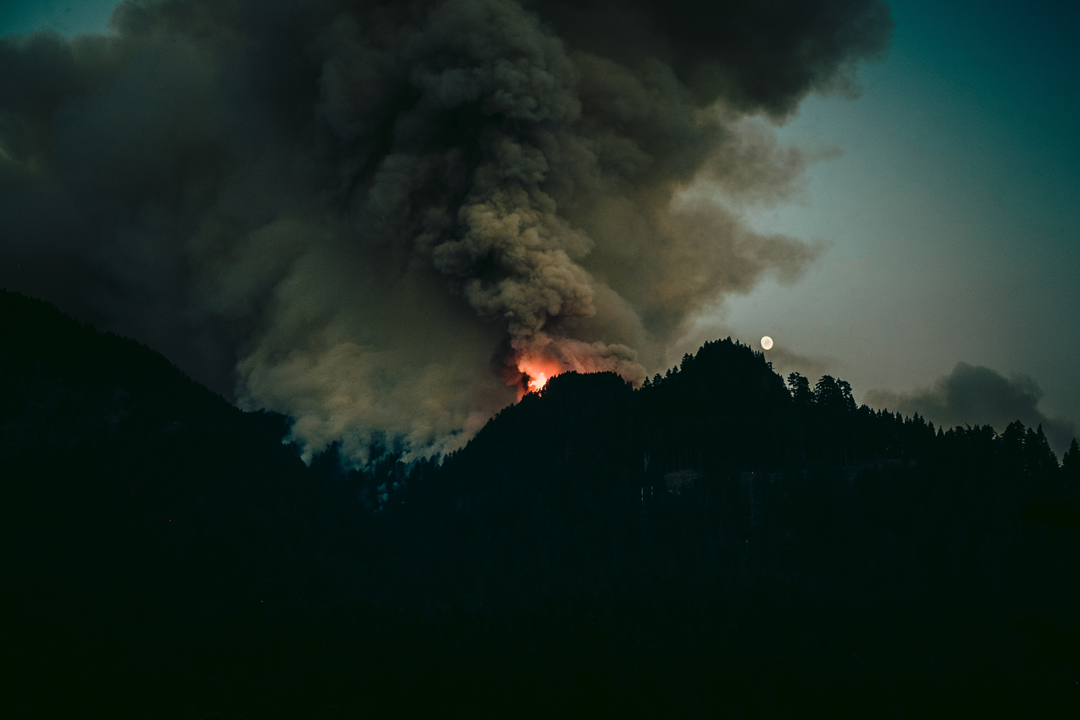
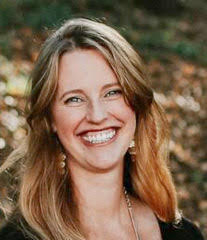
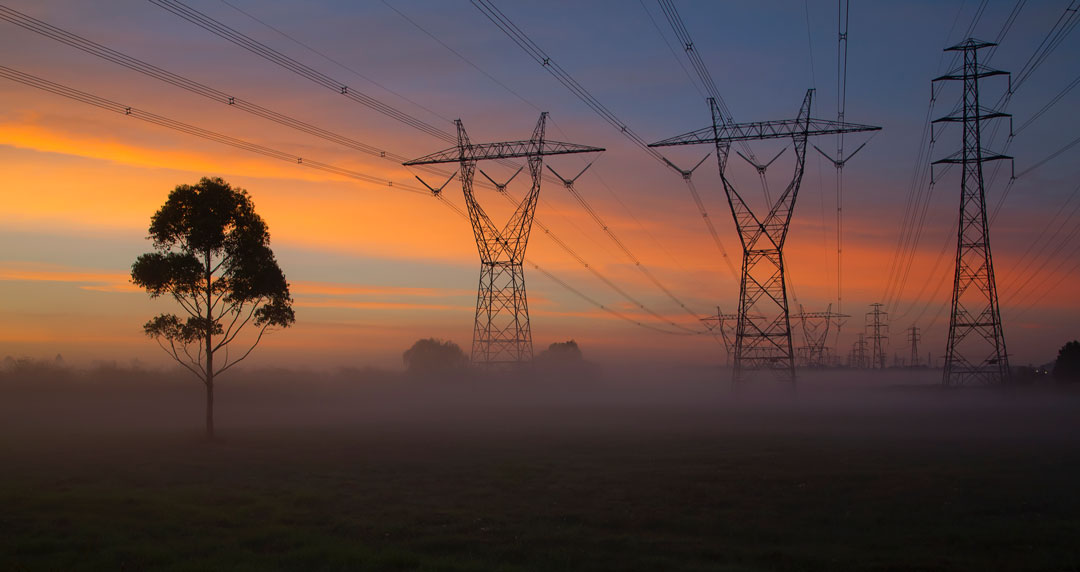
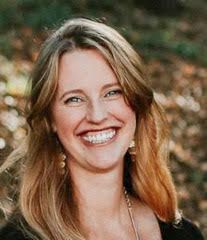
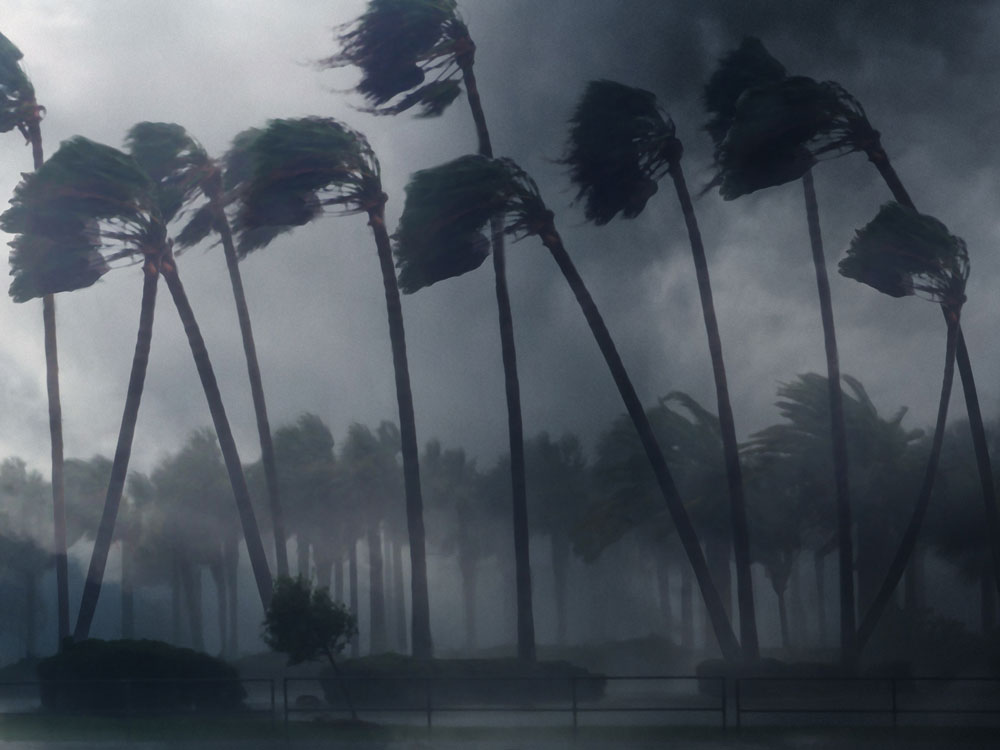
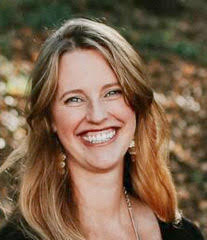



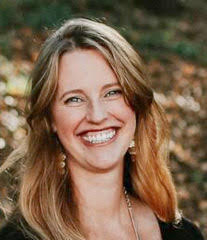
 RSS Feed
RSS Feed
